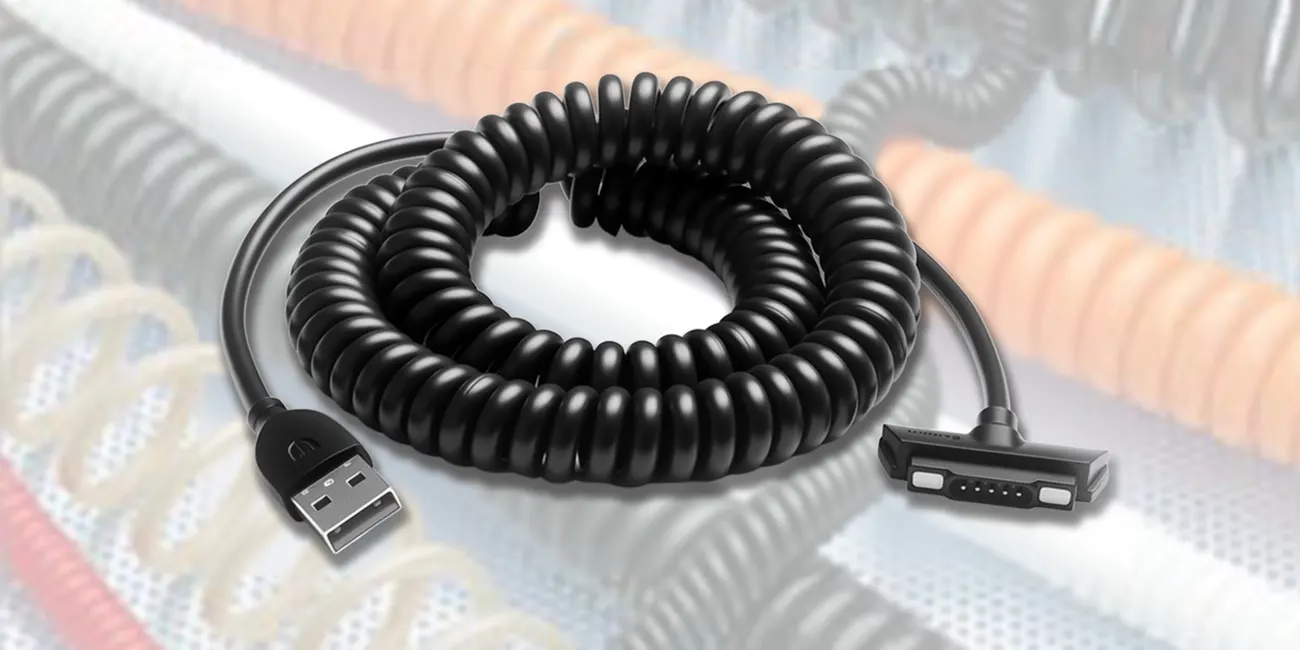
By quanyu lee
2025-09-02 10:03:30
Spiral Cable Knowledge Sharing: Structure, Types, and Applications
In modern electronics and industrial production, spiral cables are widely used in communication, medical, automotive, and automation systems thanks to their excellent flexibility and durability. This article provides a comprehensive overview of spiral cables, including their definition, components, functions, types, application fields, and practical FAQs, to help readers gain a deeper understanding of this specialized cable product.
1. What is a Spiral Cable?
A spiral cable, also known as a coiled cable, is a type of cable designed to stretch and retract like a spring. It is typically made of highly flexible conductors and insulation, arranged in a spiral-shaped coil. This unique structure allows it to extend when in use and automatically retract when released, keeping the workspace neat and organized.
🔗 For international standards on spiral cable safety, see IEC – International Electrotechnical Commission.
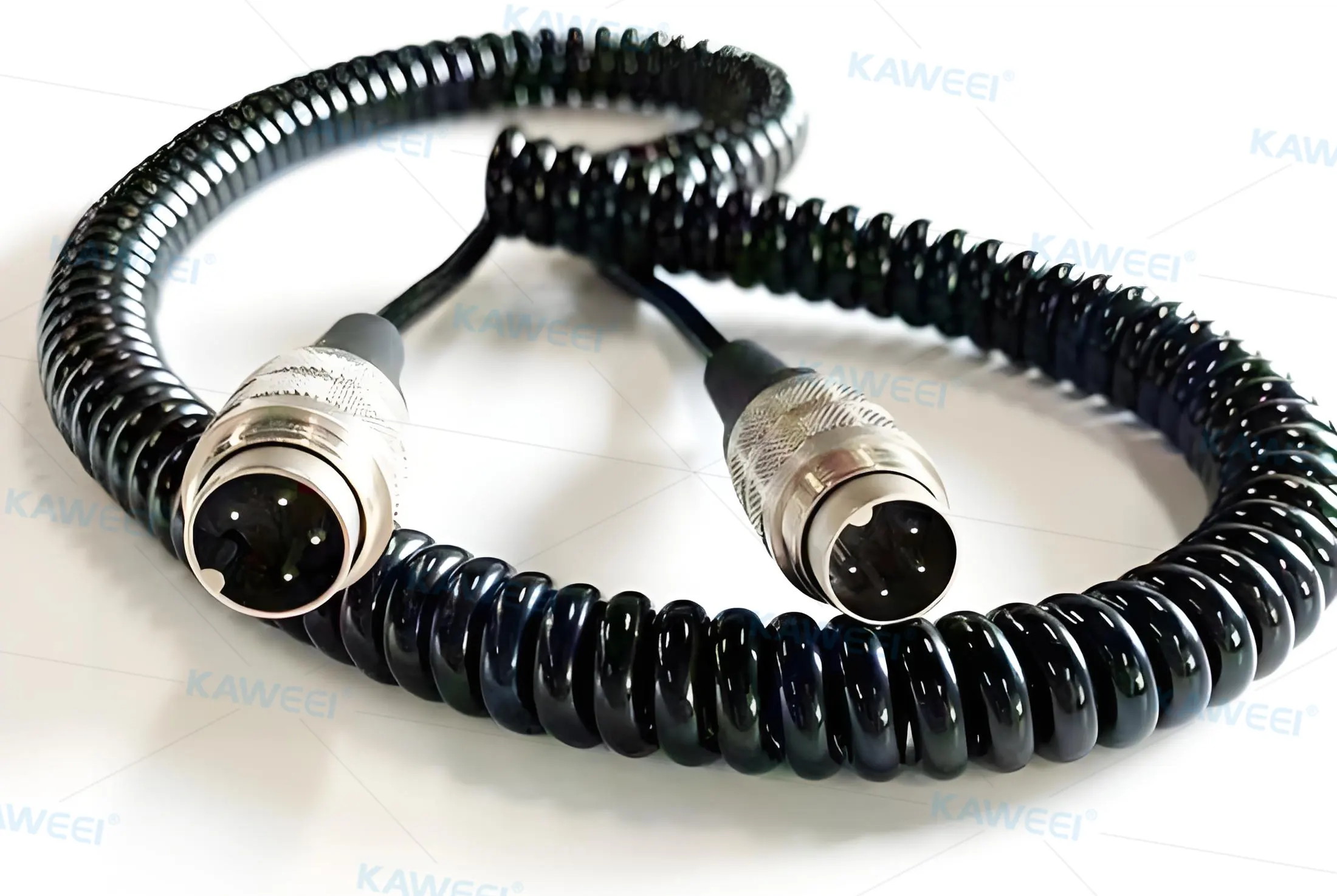
2. What are the Components of a Spiral Cable Assembly?
A spiral cable assembly generally consists of:
- Conductor: Usually made of tinned copper or pure copper wire to ensure high conductivity.
- Insulation: Commonly PVC, PUR, or TPE materials, providing flexibility and abrasion resistance.
- Sheath: The outer protective layer that offers resistance to oil, chemicals, and UV exposure.
- Terminations: Connectors or plugs tailored to specific applications for easy installation and replacement.
🔗 For global wire and cable connectivity research, visit IWCS – International Cable & Connectivity Symposium.
3. What is the Function of a Spiral Cable?
The primary function of spiral cables is space-saving and maintaining order. Their stretchable design prevents tangling and knotting issues common with standard cables, while also protecting the conductors from excessive pulling. Spiral cables are especially suitable for dynamic environments, such as robotic arms, medical carts, and automotive devices.
🔗 Related electrical manufacturing guidelines can be found at NEMA – National Electrical Manufacturers Association.
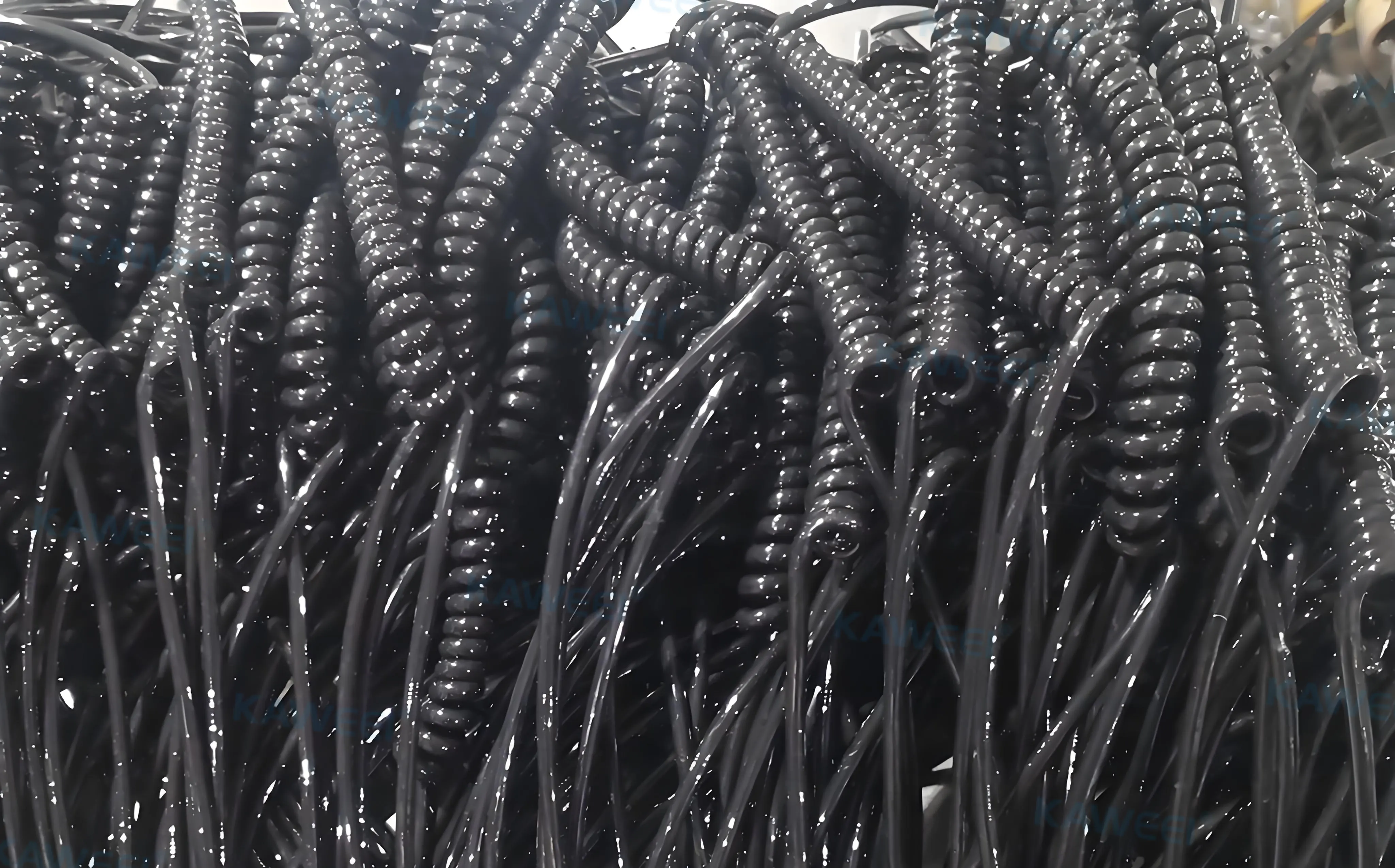
4. What are the Four Types of Spiral Cables?
Spiral cables can be classified into four main categories:
- PVC Spiral Cable: Cost-effective and suitable for general electronics and light-duty applications.
- PUR Spiral Cable: Offers superior abrasion and oil resistance, widely used in industrial machinery.
- Shielded Spiral Cable: Features a metal shielding layer to reduce electromagnetic interference (EMI).
- Medical-Grade Spiral Cable: Made with biocompatible materials, offering enhanced safety and flexibility.
🔗 For medical device compliance, refer to ISO 13485 Medical Device Standards.
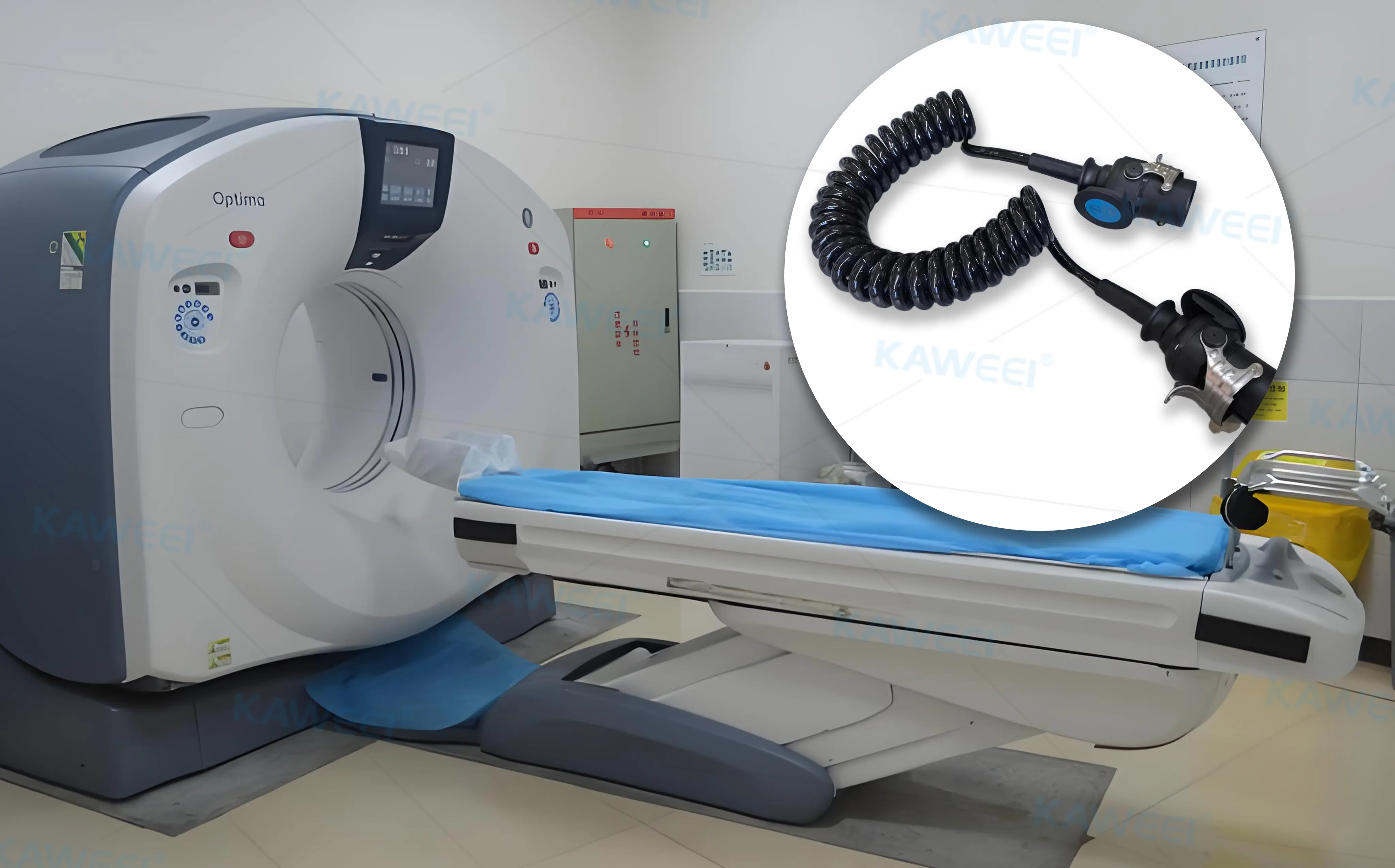
5. What are the Application Fields of Spiral Cables?
Spiral cables are used across multiple industries, including:
- Communication Devices: Telephone handsets, intercom systems.
- Automotive & Transportation: Trailer power lines, charging cables.
- Medical Industry: Monitoring systems and mobile medical devices.
- Industrial Automation: Robotic arms, power tools, sensors.
- Consumer Electronics: Headphones, portable device power, and signal transmission.
🔗 Learn more about industrial automation trends at Automation World.
6. How to Use a Spiral Cable Winder?
A spiral cable winder helps organize and store spiral cables properly:
- Insert both ends of the spiral cable into the winder slots.
- Gently rotate the winder to coil the cable evenly.
- Secure it to prevent tangling and bending, thus extending the cable's service life.
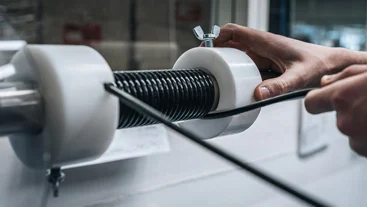
7. FAQ: Common Questions About Spiral Cables
Q1: Do spiral cables break easily from frequent stretching?
A1: High-quality industrial spiral cables are made from fatigue-resistant materials and tested under international standards (see UL Cable Standards). Proper usage within the rated extension length ensures durability.
Q2: Can spiral cables be customized?
A2: Yes. Length, material, jacket type, and connectors can all be tailored to meet project requirements. For example, Kaweei Wire Harness Custom Factory provides a variety of customized spiral cable solutions for industrial, medical, and consumer applications.
Q3: What advantages do spiral cables have over regular cables?
A3: The key advantages are flexibility, retractability, and neatness, making them ideal for applications involving frequent movement or limited space.
8. Conclusion
With their unique design and durability, spiral cables play a vital role in modern industries, medical devices, and electronic products. From their basic components to versatile applications, they provide efficiency, safety, and flexibility. Whether in standard models or fully customized solutions, spiral cables deliver reliable and adaptable connectivity for diverse needs.



